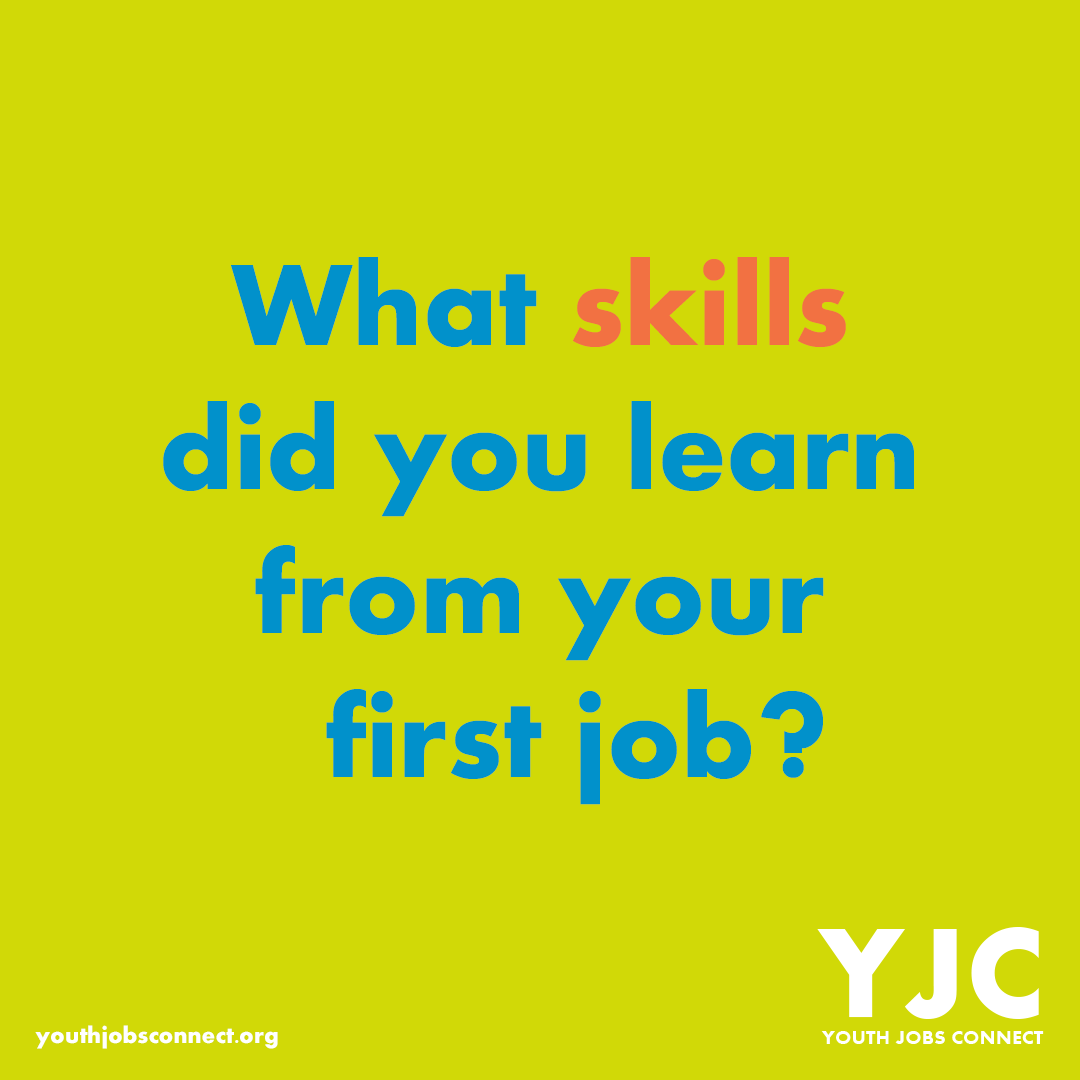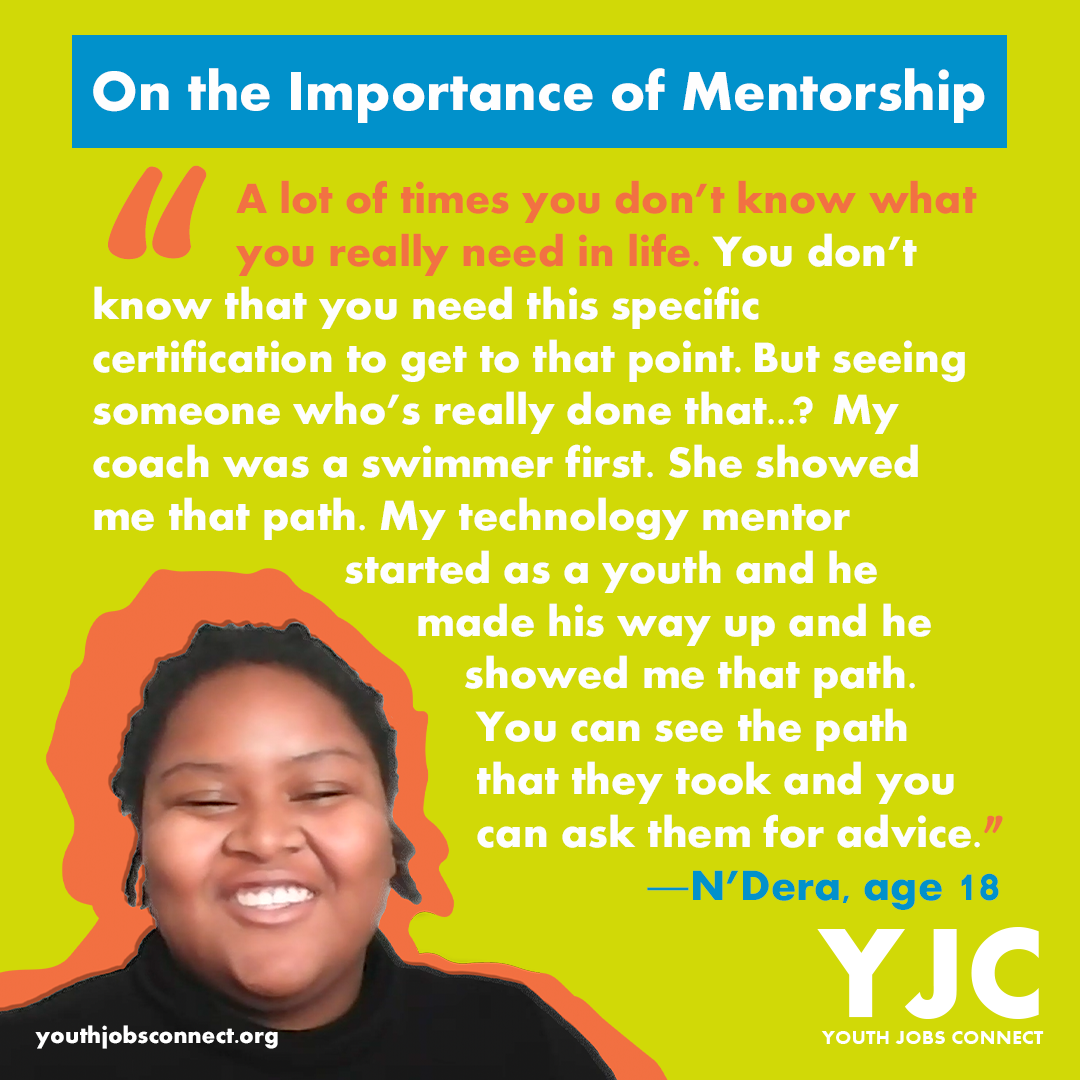Meet N’Dera - 3D Printer Technician, Lifeguard, and Businesswoman
Her Story
My name is N’Dera Muhammad, I’m 18 and I currently live in Baltimore City. I worked in the Summer Youth Employment Program in the 3D print shop with Digital Harbor Foundation. I found DHF through my sister. Originally, I didn’t have that much of an interest in technology…
I preferred cooking. When I started at DHF, I wanted to learn graphic design, but I ended up learning a lot more than that. I ended up liking fabrication a lot more. Fabrication is the process of making something from basically nothing. I always wanted to open a business, the type of business that’s what really changed. When I was younger, I used to want to cook and have a café. As I got older and decided I liked technology a lot more and thought that would be a better field for me to study, I decided I wanted to open up more of a tech shop. I’ve thought about, “What does the world not have enough people doing?” And, as we move into a technological age, there are not enough people who know about fabrication. There are not enough people who do fabrication.
“I’ve mostly thought about, “What does the world not have enough people doing?” And, as we move into a technological age, there are not enough people who know about fabrication. There are not enough people who do fabrication.”
I always like being creative and making things. One of the main things that told me I really liked this technology stuff was when I made my interactive doll house. I was about 14. I started at the tech center and I was completing my first program there – the first maker foundations group. What I didn’t know was that I was going to end up being there for years.
They said come up with a final project. Well, what’s something that I love? At the time I loved playing with dolls and making things. So I was like, I’m going to make an interactive doll house. To which I proceeded to create an entire two or three level doll house. In the process of making that, I learned Makey Makeys. If I use the doll’s hand wrapped in foil to be conductive. If you connect it and wire it correctly, program it… If I touch the doll and touch the doorbell, then it would create that current that would say hey, the doorbell rings. That’s where the whole sparking technology came from. Then I added a whole entire story to go behind it and it was like you were playing a game.
There were a lot of other projects that I made and they all kind of grew on each other and build upon each other. And so it was like hey let’s take it from this level to the next level.
“I knew what I wanted to study, I know exactly what I want, but there are so many walls in the field of education.”
Education is really important, because my barrier that I kept running into was that I knew what I wanted to study, I know exactly what I want, but there are so many walls in the field of education. You need at least a bachelors for a lot of things. I knew I had to go to school – but there wasn’t anything in school that was really calling to me at the time. SYEP helped me by showing me, “This is how you use this, this is how you use this machinery, this is how you use these programs.” My mentor at the time really encouraged me to break out of my comfort zone and learn new programs. Had I not done that, I wouldn’t realize I like CAD as much as I do. That’s what I think SYEP should really be about – growing in the field you want to do and pursue while also being open to learning new things. There needs to be more education, more programs – “Hey, you want to learn fabrication? Bet. We do have fabrication! We have this fabrication program where you can learn how to use a CNC mill, 3D printing, prototype and make things and design things. You can learn these things. I got to really know what it is that I want to do. You should be able to get that experience.
“Too many places say they won’t hire youth because youth don’t have experience – nobody’s going to get experience if you don’t teach them.”
Too many places say they won’t hire youth because youth don’t have experience – nobody’s going to get experience if you don’t teach them. They’e not going to want to get experience if they have an interest and you just shut them down all the time. When I was 14 I wanted to cook, but for all the cooking jobs you had to be 16. And look where I’m at now, I’m in technology because that’s the job that would take me. And I ended up loving it. One day when I get older, and I get into a system, I want to be able to say this is another 3D making shop – a maker shop. You can come here and you can learn skills. I want to also be able to create those opportunities for youth.
In addition to working with DHF, I’ve also worked with Baltimore City Parks and Rec Aquatics. That is a really big thing to me. The only reason I started was because my coach pushed me. She said, “Hey, I need guards for my pool, I think you’ll be good at this, you’re a strong swimmer. Take this certification class, get your certifications, and you can work for me this summer. Which is what I did.
That summer while I was working at Digital Harbor I was also working at the pool. They were two completely different experiences. At the pool I got a lot more experience when it came to engaging with other people – learning to be more vigilant and watching out for people. I also got some good skills out of it, like learning how to speak up for myself.
At Digital Harbor, I learned technological skills: this is a 3D printer, this is how you assemble a 3D printer, this is how you break apart a 3D printer, and this is how you fix it when it won’t print. The printer is clogged, what do I do? And learning that, that’s a really good skill to have. Both of these experiences I grew from.
I continued to work for the 3D print shop until when COVID hit. But then they ended up rehiring me during that summer to help with the YouthWorks program as a Project Specialist. So then I got to work with them some more because I like working with DHF.
I’m not a reach out to everyone all the time kind of person, but because of my experience and my years and the amount of programs I’ve done with DHF I can say, “Hey, you might like this.”
And then I got to help other people. Being the person that says, “Hey, I noticed you haven’t been showing up to programs for awhile, and I just wanted to make sure everything’s good. Are you still interested in this, that, and the third?”
But it was also different, because it also let you see more of the administrative side of things, versus the YouthWorkers side. I was able to review content, and make sure other youth opinions were heard. Me and a group of two other youth were the youth voices for the programming. We would review everything, the lessons we were going to go through, and say “Hey, I think this might be unclear, I don’t really think that this is understandable for someone who is, say, 14.” Then we also had chances where we met with other youth and asked “What do you want to see? What do you want in these programs?” That was really where my voice kind of helped other people. I feel like it did have an impact on other people. Which I love doing, I love helping people, so that was great.
As far as how to improve the programs, I think there needs to be more in different fields. If a youth wants to get into cooking, there should be that fields that work with local businesses and ask “Hey, do you want to employ youth at your shop? So-and-so is 14 years old, but he has a really strong passion for cooking and we really think he can learn from you. And I’ve met people in my time who are willing to say – “Hey, I would love to have you!” Those opportunities are out there, but not everybody has access to them. I think that Summer Youth Employment needs to be that bridge between the youth and the jobs – because the jobs are there, but nobody tells them that they’re there.
“Summer Youth Employment needs to be that bridge between the youth and the jobs – because the jobs are there, but nobody tells them that they’re there.”
It’s important to have mentors, because a lot of times you don’t know what you really need in life. You don’t know that I need this specific certification to get to this point. You might not know how to get to that point, but seeing someone who’s really done that and been through everything before? My coach was a swimmer first, she showed me that path. My technology mentor started as a youth and he made his way up and he showed me that path.
You can see the path that they took and you can ask them for advice.
I think we’re being forced into a technological era before we’re actually ready. Instead of easing into it, like say, using a pool analogy. Instead of getting in 3ft and going deeper, we’re just going straight to 12 feet. And some of us are drowning. No other way to put it. Some of us are drowning. Some can swim, some can figure it out, and some of us are drowning.
I feel like youth need more mentors. And, I get it, this is so new to everybody, but at least certain people have experience doing these kinds of things. While it might not be in the same kind of way, you still have experience doing these kinds of things. One of the best parts about mentors is that, even when you want to give up on yourself, they don’t always want to give up on you. When you find a really good mentor that won’t give up on you, that’s how you know you’ve got someone who’s really there for you.
You need your lifeguard. You jumped in 12 feet. You need your lifeguard.







